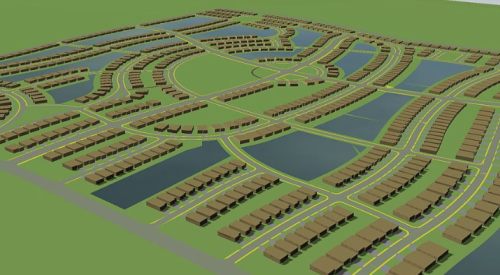One of the few benefits of a real estate down cycle like the one we’re currently riding is the abundance of incredible deals to be found. Builders and developers with the financial means — and the ability to wait out the downturn to make an investment pay off — have been mining real estate markets for the best deals. Whether it’s the farmer who turned down offer after offer before finally deciding to get what he can for his land, or that piece of distressed property that is available to the highest bidder for dimes on the dollar, builders have been able to capitalize on these opportunities.
Lately, however, the talk from builders that I’ve connected with has been about the suddenly dwindling supply of available prime real estate in their markets, especially entitled land and finished lots in good locations. I’m also hearing stories of bidding wars leading to a run-up in lot and land prices in certain submarkets and communities.
The fascinating thing is that these land battles and lot shortages are even occurring in some of the nation’s most overbuilt markets.
Metrostudy’s Brad Hunter reported on this phenomenon in late November after hearing about public builders duking it out for lots and land in Lee and Collier counties in Florida — a bubble market with an estimated 100-month supply of available lots.
What do these builders see that perhaps others don’t?
Hunter did a little digging and found that when the properties in lowest demand — mainly mothballed subdivisions and lots in areas that, as he put it, “nobody will care about for another five years” — are taken out of the equation, the lot supply suddenly drops to just 20 months. To reach this conclusion, he calculated the months of supply in subdivisions that had a minimum of 10 starts during the past year.
Hunter applied this formula to other bubble markets across the country and had similar findings. For instance, the 78-month supply of single-family lots in Las Vegas drops to just 28 months when only active subdivisions are considered. Phoenix’s 134-month supply dips to 35 months, and Atlanta’s whopping 314-month supply drops to 33 months.
The point is that while there may not be a lot shortage on a national scale, on a micro level, the threat of a coming undersupply of entitled land and lots in many submarkets is very real.
For more on Hunter’s research, visit: http://bit.ly/rzawLo.












